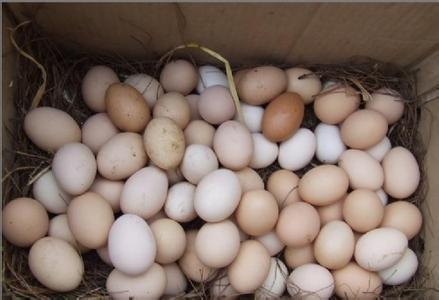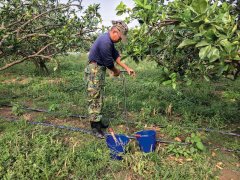The price of eggs in Taiwan has soared and stabilized, and the balance between supply and demand has stabilized the price of eggs.
When the national egg shortage crisis broke out in February this year, the Council of Agriculture once imported eggs from abroad to meet the domestic demand for eggs. at that time, the price of eggs was as high as 36.5 yuan per jin, but since March, the price of eggs has gradually stabilized, and on April 15, the land price of eggs reached 31.5 yuan per jin. Li Yiqian, head of the Poultry production Section of the Animal Husbandry Department of the Council of Agriculture, said that at present, the supply and demand of the egg market has reached a stable state, and the price of eggs remains flat.
Flood and other factors affect egg laying efficiency and cause egg price to rise.
Affected by the flood last year, about 1.3 million laying hens were drowned in Taiwan. in addition, egg farmers did not dare to use fenpril indiscriminately to control chicken lice, resulting in a decline in egg production. In addition, the day-to-night temperature difference in the central and southern regions affected the laying efficiency of laying hens in traditional henhouses, and egg processors bought eggs in the fresh egg market in order to meet the demand for liquid eggs. Various factors made egg prices rise continuously, and even on February 20, the price of eggs reached a 20-year high. Each jin is as high as 36.5 yuan.
Li Yiqian said: in February, during the Spring Festival, the price of eggs peaked at 36.50 yuan per catty. Under the imbalance between supply and demand in the market, the Central Animal production Association coordinated egg processors to release some eggs to supplement market needs. At the same time, nine containers were imported from Japan and the United States, with about 4.6 million eggs. The Council of Agriculture used the method of "eggs for eggs" to supply these imported eggs to processors. Li Yiqian said that at present, the eggs were used up in mid-March, considering that the supply and demand of the egg market is stable, and there is no need to stabilize egg prices through imported eggs.
Wang Jung-sheng, head of the laying hens section of the Republic of China Chicken Association, said that during the off-season demand for eggs, some egg farmers will carry out forced molting for laying hens that have been laying for eight or nine months. By adjusting their diet, they can promote the feathering of laying hens. Molting can prolong the laying period of laying hens, up to eight months. Wang Rongsheng added that the operation time for forced molting is usually about 30 to 45 days. Wang Rongsheng said that laying hens will begin to lay eggs when they are raised for 120 days, and their egg production will tend to stabilize by 140 days old. If egg farmers begin to raise more laying hens around January, they can begin to get a stable egg supply in March or April, achieving a balance between supply and demand and stabilizing egg prices.

- Prev

How to detect soil fertility different texture soil fertility characteristics are the same? How to rationalize fertilization
Soil is the foundation for crop growth.In the long run, excessive fertilizer application not only wastes fertilizer resources and pollutes the environment.For example, nitrogen pollutes groundwater, and the concentration of nitrate in plants is too high, but it also easily causes soil "disease" and deterioration, making it difficult to provide fertilizer.
- Next

What are the prospects for edamame bean planting? is it profitable? Taiwan's edamame bean export to Japan holds the top spot.
Taiwan edamame is super proud, selling Japanese champion for 11 years in a row! According to the statistics of the Agricultural improvement Farm of Kaohsiung District of the Council of Agriculture, the export output value of edamame beans in 107 years is US $81.18 million, equivalent to NT $2.45 billion. The main export market is Japan, accounting for 85%, while the rest is sold to the United States and Canada.
Related
- A course of planting techniques and methods on how to grow carrots
- How to plant the latest tulips?
- Is it better to pick tea in the morning or in the afternoon? When is the best time for tea to be picked? what is the third or fifth tea?
- Launch Yuanxiao Happy combination Haocha + Tea Yuan healthy Taste
- Penghu Tourism "Fireworks 20 Parade with You"
- 2022 West Lake Happiness holds "Digital Revitalization Voucher" and draws iphone13 and laptop.
- Banqiao Fuzhou social houses are designed to change start-up combined with police elimination to create a safe and livable environment
- The convenient measure of "mechanical weeding" in Xinbei has been abused and the Agriculture Bureau has imposed heavy penalties on the illegal land consolidation.
- Changgeng University Joins Hands with Four Memory Factories to Rescue Memory Talent Shortage
- The list of Taiwan's top 100 MVP managers is listed by the Director-General of the Farmers' Association of Sanxia District.

